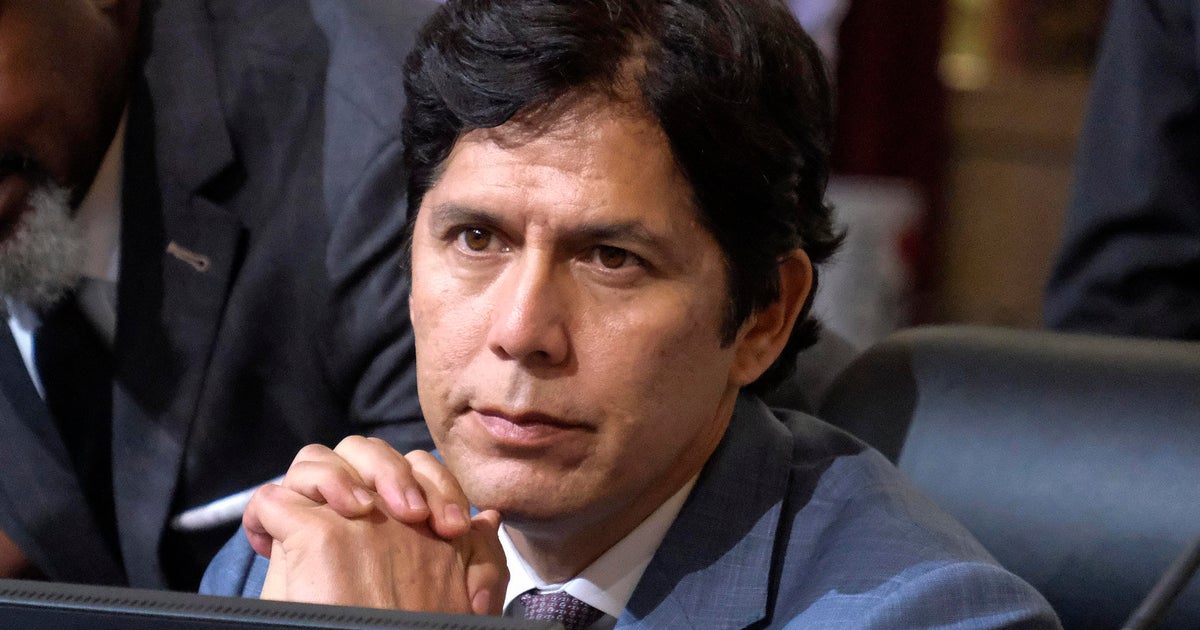Voters weigh California Proposition 36, which would implement stronger penalties for theft, drug offenses
California voters will soon decide the fate of Proposition 36, weighing whether to roll back criminal justice reforms from a contentious 2014 ballot measure that lessened the penalties for some crimes including theft and drug possession.
If passed, Proposition 36 would walk back much of the decade-old Proposition 47, turning some theft misdemeanors into felonies, requiring a warning about a possible murder charge for selling or providing drugs, and creating a new "treatment-mandated felony," according to the nonpartisan Legislative Analyst's Office.
It's likely to increase the prison population by around a few thousand people, the LAO says. At this time, there are about 90,000 people in state prison. According to the California Department of Corrections and Rehabilitation, there were 170,000 people incarcerated in 2006.
On the state level, Proposition 36 would increase costs in two ways. Some people would be required to serve their sentences in state prison, rather than county prison, thus increasing the state prison population.
It would also increase state costs due to an increase in the workload at the state level. The LAO says felonies take more time to resolve than felonies and that treatment-mandated felonies would increase the workload of the court.
Due to this, the LAO said Proposition 36 would likely increase state criminal justice costs in the range of tens of millions of dollars to hundreds of millions of dollars annually.
On the local level, costs are projected to increase too. The LAO said despite Proposition 36 reducing the county jail population with some people going to state prison, it could also increase the population on the county level due to people spending more time in county jail or on community supervision.
Proposition 36 is projected to increase the county jail by a few thousand, the LAO says. At this time, there are about 250,000 people in county jail.
Just like on the state level, the county courts would likely see an increase in workload. It would require more local prosecutors and public defenders and treatment-mandated felonies creating more work for county agencies, such as probation or behavioral health departments.
It's projected to likely increase local criminal justice costs by tens of millions of dollars annually.
Proposition 36 would reduce how much the state must spend on mental health and drug treatment, school truancy and dropout prevention and victim services. The LAO says this would likely save the state tens of millions of dollars every year.
cost hundreds of millions of dollars.
Under current California law, thefts of items worth $950 or less are generally classified as misdemeanors. The value threshold was raised from $400 when voters passed Proposition 47 in 2014, which aimed to reduce the state's prison population.
The Center on Juvenile and Criminal Justice, which is against Proposition 36, says Proposition 47 has saved the state nearly $1 billion by reducing the prison population but also reinvesting money into the communities for education, trauma recovery and mental health, which Proposition 36 will cut.
Meanwhile, the Family Business Association of California has called Proposition 47 "catastrophic" for the state, saying homelessness has gone up by 51% and smash-and-grab crimes have cost businesses nearly $9 billion a year. It says Proposition 36 will fix a loophole in Proposition 47 that allows thieves to take less than $950 in property from different stores and remain a misdemeanor.
Under Proposition 36, theft would be classified as a felony offense if the suspect has two or more past convictions for certain theft crimes, such as shoplifting, burglary and carjacking. The sentence would then be up to three years in county jail or state prison.
If passed, the measure would require the courts to warn people that they could be charged with murder if they sell or provide illegal drugs that kill someone. According to the LAO, the requirement may make it more likely for a person to be convicted of murder if they sell or provide illegal drugs to a person who dies.
The "treatment-mandated felony" would apply to a person who possesses certain drugs – such as fentanyl, heroin, cocaine or methamphetamine – and has two or more previous convictions for some drug crimes, such as possessing or selling narcotics.
Those people would then generally receive mental health or drug treatment and their charges will be dismissed when treatment is completed, according to the LAO analysis. Those who fail to finish treatment could be required to serve up to three years in state prison.
The proposition is likely to increase the county jail population by a few thousand, the LAO projects, and would increase the workload for local prosecutors and public defenders due to felonies taking more time to resolve than misdemeanors.
California Gov. Gavin Newsom and several other Democrats oppose Proposition 36, saying it is a wrong-headed attempt at drug policy reform that would increase the prison population by tens of thousands and cost the state billions.
However, some Democratic mayors across the state support the proposition, including San Francisco Mayor London Breed and San Jose Mayor Matt Mahan, who said the measure would help provide treatment for people suffering from addiction who commit crimes.
Newsom signed a package of bills in August that target organized retail theft and other property crimes.



